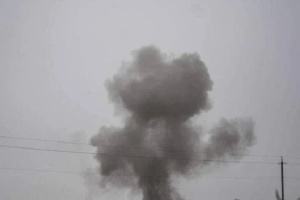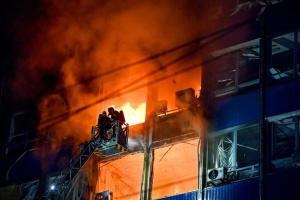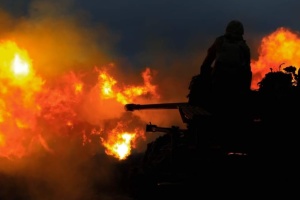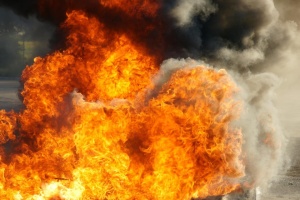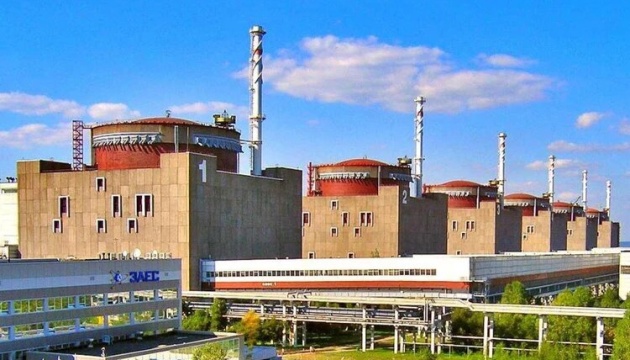
Explaining complex things in simple words: Condemning Russian provocation at ZNPP, missile treat to Ukraine and Israel, security treaties of Ukraine
CONDEMNING RUSSIAN PROVOCATIONS AT ZNPP
On April 15, at a meeting of the UN Security Council, representatives of the EU, the United States, and Ukraine held Russia responsible for the incidents at the Zaporizhzhia nuclear power plant.
▪ Russia bears full responsibility for the threats to nuclear safety it poses at the seized ZNPP. The root cause of all risks is Russia's unprovoked aggressive war against Ukraine.
▪ The occupation of the ZNPP by Russian troops and the operation of the power plant by unqualified personnel are turning the largest nuclear power plant in Europe into a source of danger.
▪ Among the violations committed by the Russian Federation are the installation of anti-personnel mines along the perimeter of the station, blocking access of legitimate management and personnel to the facility, disabling automated data transmission from the radiation monitoring system, failure to provide timely and full maintenance.
▪ Russia is making crazy accusations against Ukraine in the ZNPP attacks, hoping to remove the issue of de-occupation of the station from the agenda.
▪ As long as the aggressor state of Russia has the right to veto in the UN Security Council, this body is incapable of making decisions aimed at ensuring security and peace in Europe.
MISSILE THREAT TO UKRAINE AND ISRAEL
David Cameron, British Foreign Secretary, and John Kirby, U.S. National Security Council Coordinator for Strategic Communications, said that allies would not help Ukraine shoot down Russian missiles and drones in the same way that they helped Israel repel an Iranian attack.
▪ The threats experienced by Ukraine and Israel are similar. Shahed drones in the sky of Ukraine sound the same as in the sky of the Middle East. Ballistic missiles hit in the same way everywhere unless they are destroyed.
▪ Coordinated successful repulsion of the Iranian attack showed the high effectiveness of collective defence against terror, which is based on unity and political will. Israel, the United States, Britain, France, and Jordan acted together.
▪ The skies of Europe could have long ago had exactly the protection needed if Ukraine had the same full support of its partners in shooting down drones and missiles.
▪ Israel is not a member of NATO, and the Allies did not need to invoke Article 5 of the Washington Treaty to protect people's lives.
▪ We understand the doubts of our partners because Russia seems more threatening than Iran. However, condoning aggressors only encourages them, while a decisive, power-backed response restrains them from scaling up aggression.
SECURITY TREATIES OF UKRAINE
On April 11, Ukraine signed an agreement on security guarantees with the ninth country—Latvia.
▪ While Ukraine continues resisting Russian aggression, it requires the help of partners. We are grateful to every country that has demonstrated this level of support and invite other partners to follow this example.
▪ Security agreements involve political and practical commitments to assist in the restoration and protection of Ukraine's sovereignty within its internationally recognized borders.
▪ The agreements not only provide critical defence assistance now, but also ensure long-term, uninterrupted security support to Ukraine.
▪ Support for Ukraine is the best investment of democratic countries in their own security and defence. Each of Ukraine's partners can choose an individual format of security assistance.
▪ Security agreements are not an alternative to Ukraine's accession to NATO. They will be valid until Ukraine acquires full membership in the Alliance and possibly included in the contractual framework within NATO.
Center for Strategic Communication and Information Security

